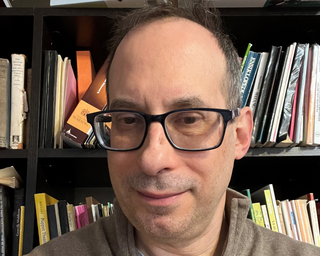
Matthew Isaac Cohen is a leading scholar-practitioner of Indonesian performing arts, with more than thirty-five years of experience in the academic study, performance, and curation of Indonesian puppet traditions (wayang). He is currently a professor at the University of Connecticut, where he teaches puppet arts and theatre studies, and is at work on two books about wayang, based on the research he has been conducting over the last seven years into the Dr. Walter Angst and Sir Henry Angest Collection of Indonesian Puppets at Yale University Art Gallery (YUAG), the largest collection of wayang puppets in the world. He holds a Ph.D. in anthropology from Yale (1997), has twice held fellowships from YUAG’s Department of Indo-Pacific Art, and was an ISM fellow from 2017-2018.
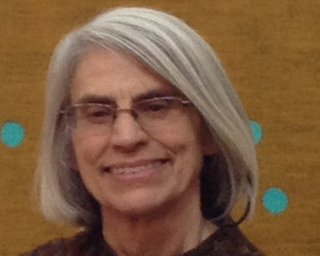
Kathy Foley is a research professor of performance, play, and design at the University of California, Santa Cruz, and distinguished professor emerita. She has also taught at the University of Hawaii, the University of Malaya (Kuala Lumpur), Chulalongkorn University (Bangkok), and Yonsei University (Seoul). She has served as president of UNIMA-USA and is on the UNIMA-International Research Commission, Publications and Writing Commission, and Heritage Commission. She edited Asian Theatre Journal from 2005-2018 and was one of the first non-Indonesians to perform in the Indonesia National Wayang Festival (Pekan Wayang) as a dalang. She has presented wayang at the Smithsonian Institution in Washington, D.C.), San Francisco Asian Art Museum, Harvard University, University of Melbourne (Australia), and other venues. She has curated exhibitions of puppets and masks of Southeast Asia, Korea, in Thailand, and Malaysia, as well as at the East-West Center (Honolulu) and National Geographic Society (Washington). Her work has been supported by Fulbright, Asian Cultural Council, the Yale Institute of Sacred Music, and the East-West Center (Honolulu, HI). Her publications have focused on the performing arts of Southeast Asia. She guest edited the first issue (2023) of Puppetry International Research focusing on Balinese and international puppetry.
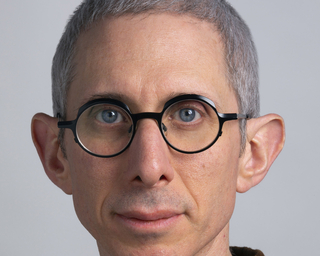
Ben Hagari works in film, video, and animation to create tragic comedies that unfold in absurdist environments. His work often employs optical illusions and “persistence of vision” (visuality after the image ceases) to understand the origins of moving images and technologies’ effects on perception. Extending from the screen-based to installation format, his projects are the result of wide-ranging research in the fields of literature, theater, art history, and scientific curiosities. His works have been shown in biennials, museums, galleries, film festivals, and other venues in the United States, Asia, Europe, and the Middle East, including at The Rose Art Museum, Brandeis University, MA, Sculpture Center, The High Line and The Boiler in New York, Whitechapel Gallery in London, Museum of Contemporary Art in Krakow, KIT in Düsseldorf, Flora Ars+Natura in Bogotá, Fundación CALOSA in Guanajuato, Mexico, Total Museum of Contemporary Art, Seoul, Istanbul Museum of Modern Art, The Tel Aviv Museum of Art and The Israel Museum, among others. Hagari is the recipient of the 2024 Guggenheim Foundation award and is a lecturer at Yale School of Art.
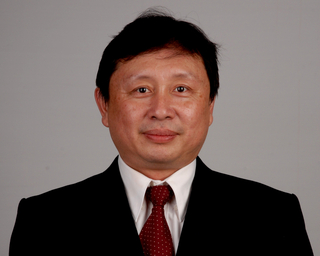
Daniel Haryono, is the director of Ullen Sentalu in Yogyakarta, Indonesia, a Javanese art, culture, and nature museum, where tangible and intangible collections come alive through performances, seminars, and exhibitions. The museum was recognized as the best museum in Indonesia by National Geography magazine. Haryono graduated with degrees in international relations from the University of California at Davis and archaeology from the University Indonesia, specializing in museology. He also holds the position of museum accessor, adviser, and speaker at national and international levels. He recently produced the Unboxing Heritage movie series with Matthew Cohen from the University of Connecticut—a documentary series showcasing the masterpiece art and cultural heritage of Indonesia, which has been aired on national cable television and world-wide. Episodes include Wayang Beber, Singasari, Mask and Tradition, Bedhaya, Legong, and most recently, Nadran of the Sea Offering and Festivity.
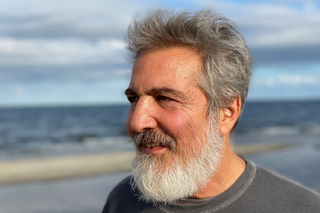
Ron Jenkins, a former ISM and Guggenheim Fellow, has conducted research on Indonesian sacred arts with the support of a Fulbright Fellowship and grants from the Asian Cultural Council, the Watson Foundation, and the Institute for Intercultural Studies. He is the author of a trilogy of books on Balinese sacred performance (masks, puppets, and sung poetry): Saraswati in Bali: A Temple, a Museum, and a Mask (Denpasar, 2014), Ruabineda in Bali: Counterfeit Justice in the Trial of Nyoman Gunarsa (Jogjakarta, 2010), and The Invisible Mirror: Balinese Literature in Performance (Denpasar, 2008), co-authored with Nyoman Catra. His play, “Islands,” about the nutmeg trade in the spice islands was performed in Bali’s ARMA museum and broadcast nationally on Indonesia’s independence day (2017). Jenkins’ translations of the plays of Nobel Laureate Dario Fo have been performed throughout the U.S. and published by Grove Press. Jenkins is Professor of Theater at Wesleyan University, and Visiting Professor at Yale’s Institute of Sacred Music.
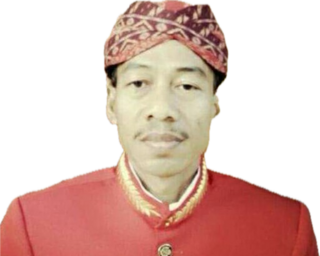
Purjadi was born in Cirebon, Indonesia in 1967 and today resides in the village of Wanasaba Kidul, located to the south of the city. He has worked as a shadow puppeteer in the distinctive Cirebon style since 1993. Aside from his puppetry activities, he teaches gamelan and heads the Pangreksa Budhi studio. He is the author of the book Pengetahuan Dasar Wayang Kulit Cirebon (Basic Knowledge of Cirebon-Style Shadow Puppetry), published by the local government of Kabupaten Cirebon. He completed a bachelor’s degree in Arabic language from IAIN Sunan Gunung Jati in 1994. He headed the local puppeteer association, PEPADI, from 2013-2018 and has also held leadership positions in other local cultural organizations, including Lembaga Budaya Cirebon and Lembaga Kesenian Kabupaten Cirebon. In 2014, he ranked first place in a national puppetry training competition (Pelatihan Peningkatan Kompetisi Teknis Pemandu Pedalangan) held by the Ministry of Education and Culture.
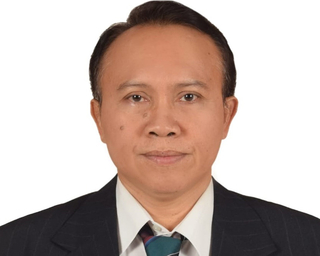
I Nyoman Sedana has been an artist and professor at the Indonesian Arts Institute Denpasar since 2006, director of Bali module for international students, and head of PEPADI Bali. He received his M.A. from Brown University and a Ph.D. from the University of Georgia where his dissertation was Kawi Dalang: Creativity in Wayang Theatre. He performed and taught Indonesian theatre in the U.S., the U.K., Bulgaria, Singapore, India, and The Philippines. He has received grants from the Yale Institute of Sacred Music, ICCR India, IIAS Netherland, ARI-NUS Singapore, ASF Bangkok, The Freeman Foundation, The Asian Cultural Council, and the Education Abroad Program at the University of California, Santa Barbara. He has published articles in Indonesia, Singapore, India, and the United States, and is co-author of Balinese Performance, Rutledge (2007). He received a Satya Lencana Gold Award from Indonesian Presiden Jokowi, and awards from Sedana’s theatre, Bali-Fest at Lasalle College, Singapore, Wayang Sutasoma, and the UNIMA Festival. He composed “Queen of the Night.”
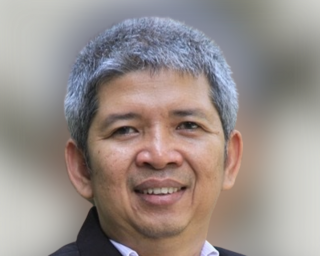
Dr. Dewanto Sukistono, aged fifty-five, and hailing from Kulon Progo, Yogyakarta, is the sixth generation of a family noted for traditional puppetry (dalang wayang kulit). His grandfather, Ki Widiprayitno, and his father, Sukarno, are recognized for pioneering the Wayang Golek Menak performance in Yogyakarta and its surrounding areas. From his early years, Dewanto has been profoundly entangled in the traditional art performances of puppet, gamelan, and dances. His academic journey began with a focus on puppetry at the high school level, and he continued his doctoral studies in the same field. Currently, he holds the position of lecturer in the Pedalangan major in the faculty of performing arts and serves as the vice rector for academic affairs at the Indonesia Institute of the Arts, Yogyakarta. In addition to his academic and artistic pursuits, Dewanto is actively engaged in research. He was honored with a short-term fellowship from the Yale Institute of Sacred Music in 2018 (September-November), and from 2019 to 2020, when he collaborated on research with Professor Matthew Issac Cohen and a team sponsored by the New Institutional Link British Council-DP2M Dikti.
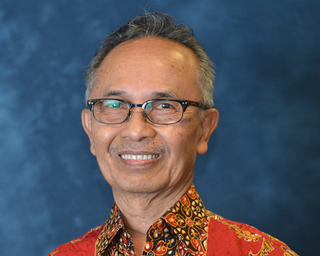
Sumarsam has played Javanese gamelan since childhood. He is also a keen amateur dhalang (puppeteer) of wayang puppet play. He holds a B.A. degree from Akademi Seni Karawitan, Indonesia, an M.A. from Wesleyan University in Connecticut, and a Ph.D. from Cornell University. He is currently the Winslow-Kaplan Professor of Music at Wesleyan University, where he has taught since 1972. His research on the history, theory, and performance practice of gamelan and wayang, and on Indonesia-Western encounter theme, has resulted in the publication of numerous articles and two books: Gamelan: Cultural Interaction and Musical Development in Central Java (1995) and Javanese Gamelan and the West (2013). His recent research, focusing on the intersections between religion and performing arts, and examining discourses of transculturalism, the performing arts, and Islam among the Javanese, has resulted in a new book, to be published in October 2024: The In-Between in Javanese Performing Arts: History and Myth, Interculturalism and Interreligiosity. He is the recipient of a several fellowship grants and awards, including the National Endowment for the Humanities and the American Council of Learned Societies fellowship (2016-17), Indonesian Bintang Satyalencana Cultural Award (2017), and Yale Institute of Sacred Music Fellowship (2019-20). He was named the 2018 honorary membership of the Society for Ethnomusicology.
